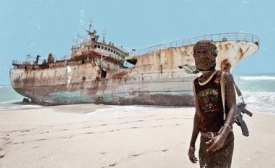international journalism

Yolanda Lopez, Director of Voice of America's News Center, introduces VOA's special reporting on the history of gun violence in the United States.

National white papers, Derek Moscato explains, can help governments influence media narratives, public opinion and policy.

On September 4th, CPD launched its fall events through a discussion with Michael Scott Moore, a journalist who survived being held captive by Somali pirates for 977 days.
Today marks one month since the assassination of journalist Javier Valdéz Cárdenas, which shook the international press community and further exemplified the pervasive violation of press freedom in Mexico. Winner of the Committee to Protect Journalists’ 2011 International Press Freedom Award, Valdéz was murdered on May 15 in broad daylight near the Ríodoce office, the local weekly publication he founded in the Mexican state of Sinaloa.
The latest incident saw Secretary Tillerson and the Saudi foreign minister, Adel al Jubeir, taking questions about the president’s visit to Saudi Arabia from a group of international journalists that did not include members of the American press corps. U.S. journalists complained that they weren’t even given a head’s up about the briefing, a shocking breach of norms that took place in one of the least press-friendly countries on Earth—a place where a servile media parrots the government’s line at almost all times and where bloggers are given lashes for speaking out.
It’s not a good time for freedom of the press. The non-profit organization Reporters Without Borders, devoted to supporting journalists worldwide, published its annual index this month. In six continents, the conditions for free media in 2014 became not just worse, but “dramatically worse,” according to the group’s “2015 World Press Freedom Index.”







